This post contains affiliate links to products and or services. I may receive a small commission for purchases made through these links, but with no additional costs to you.
India has always been a country that soul seekers and yogis from around the globe flock to in order to gain a more meaningful connection with themselves and to educate themselves more about the art of meditation and spiritual elevation.
The town of Rishikesh, nestled at the foothills of the mighty Himalayas along the Ganga River, is a mecca for the laid back, yogi, kale smoothie drinking, spiritual seekers of the world. Not only is it popular for Westerners looking to expand their spiritual minds, but also a safe haven away from the sweltering city heat for the country’s locals in the South.
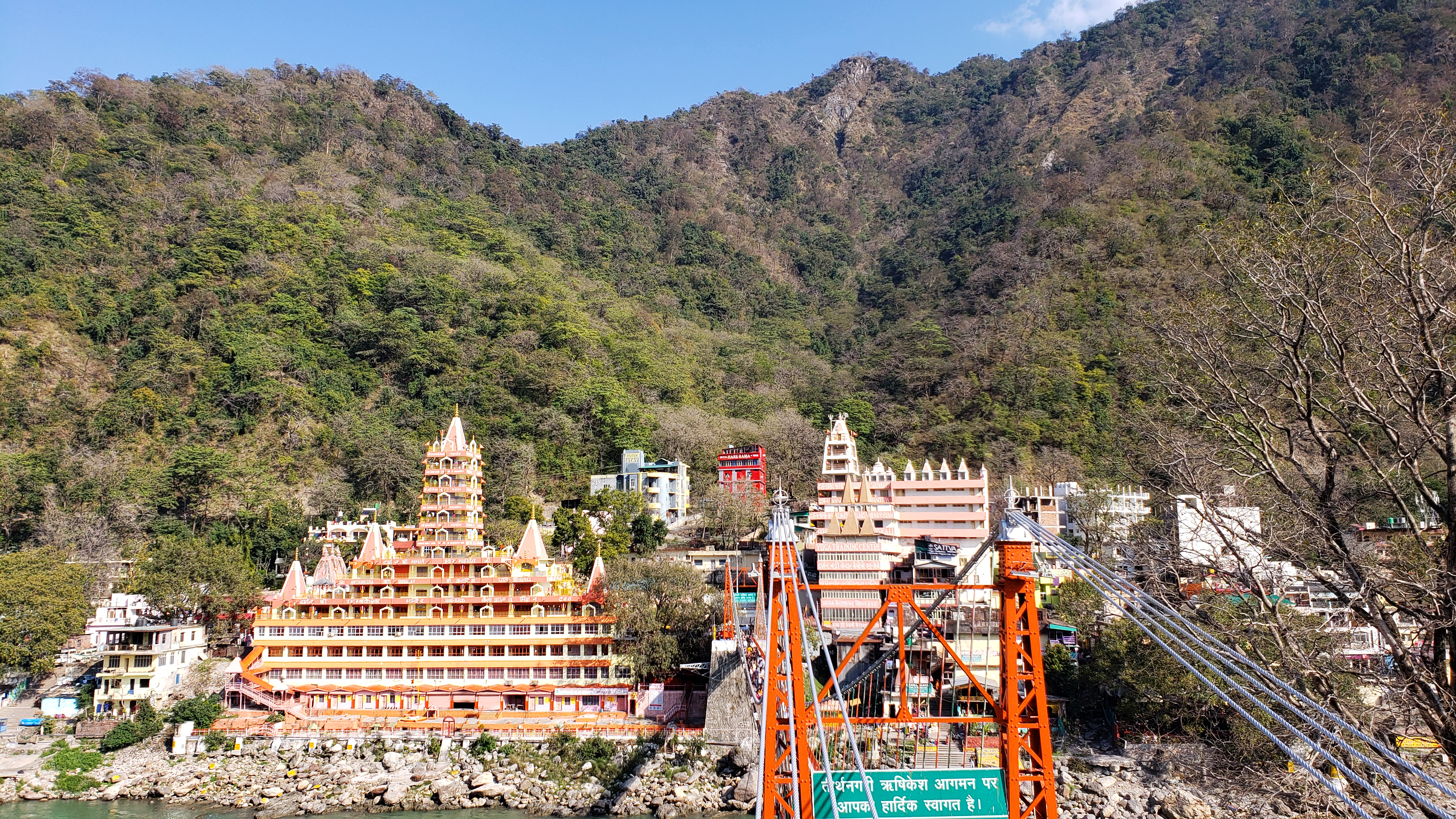
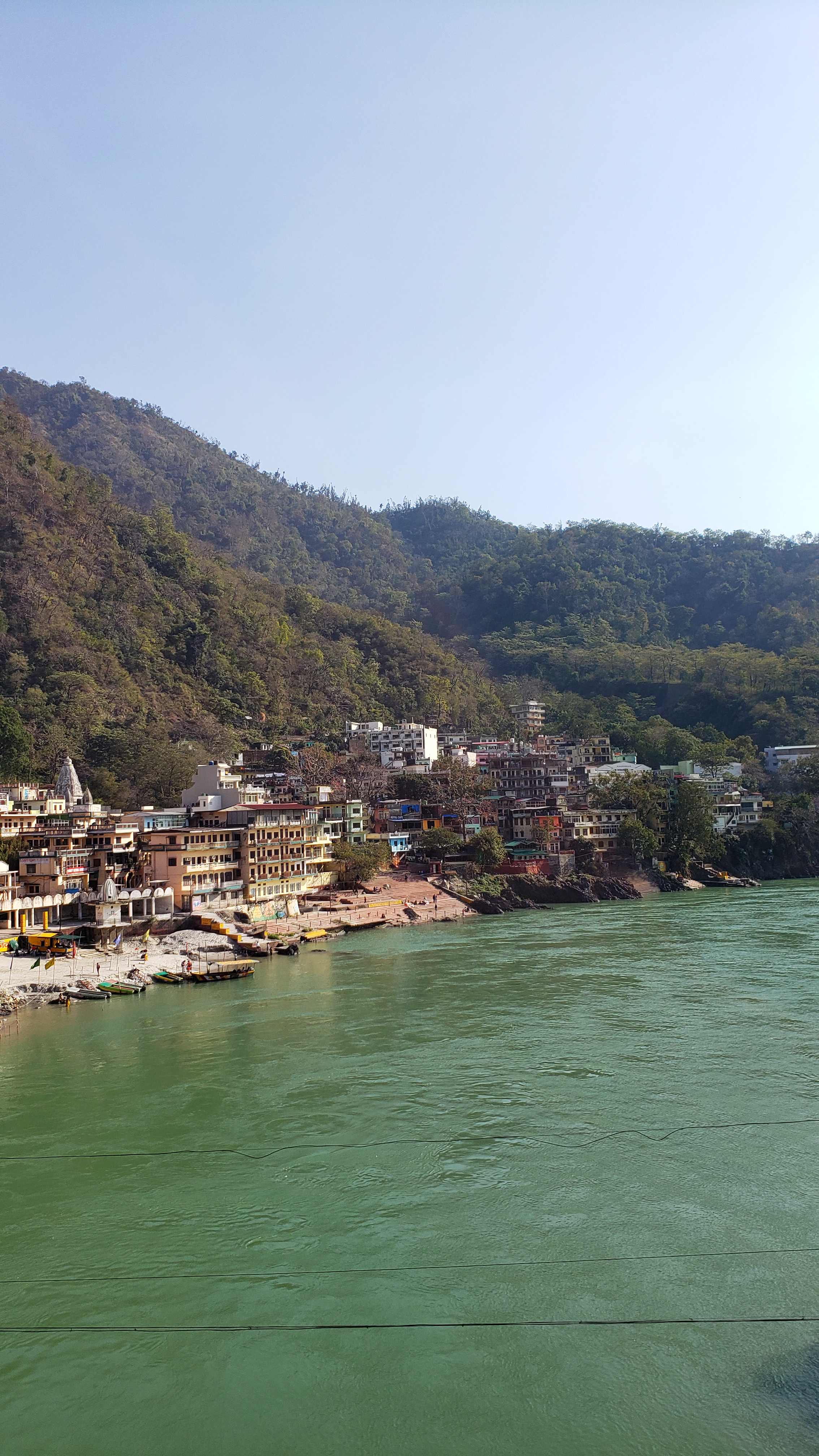
All throughout India, Ashrams are one of the most popular places to visit, or live temporarily while travelling there. What exactly is an Ashram and what is the purpose of staying there, you ask? An Ashram is traditionally a place to practice Yoga, meditation and take part in other spiritual and mind cleansing activities and is home to a spiritual leader who lives there. They are usually set in a peaceful area of a town, or village and consist of very basic living conditions such as rooms (usually shared), eating area, Yoga rooms, a library and numerous lush gardens complete with fountains and colourful flowers. The purpose of staying at an Ashram is to go back to the basics and freeing yourself of the everyday indulgences that most of us carry with us during our everyday lives. Some people stay at Ashrams for free in exchange for helping with chores, cooking, cleaning the general area and just becoming part of the “family” at the Ashram.
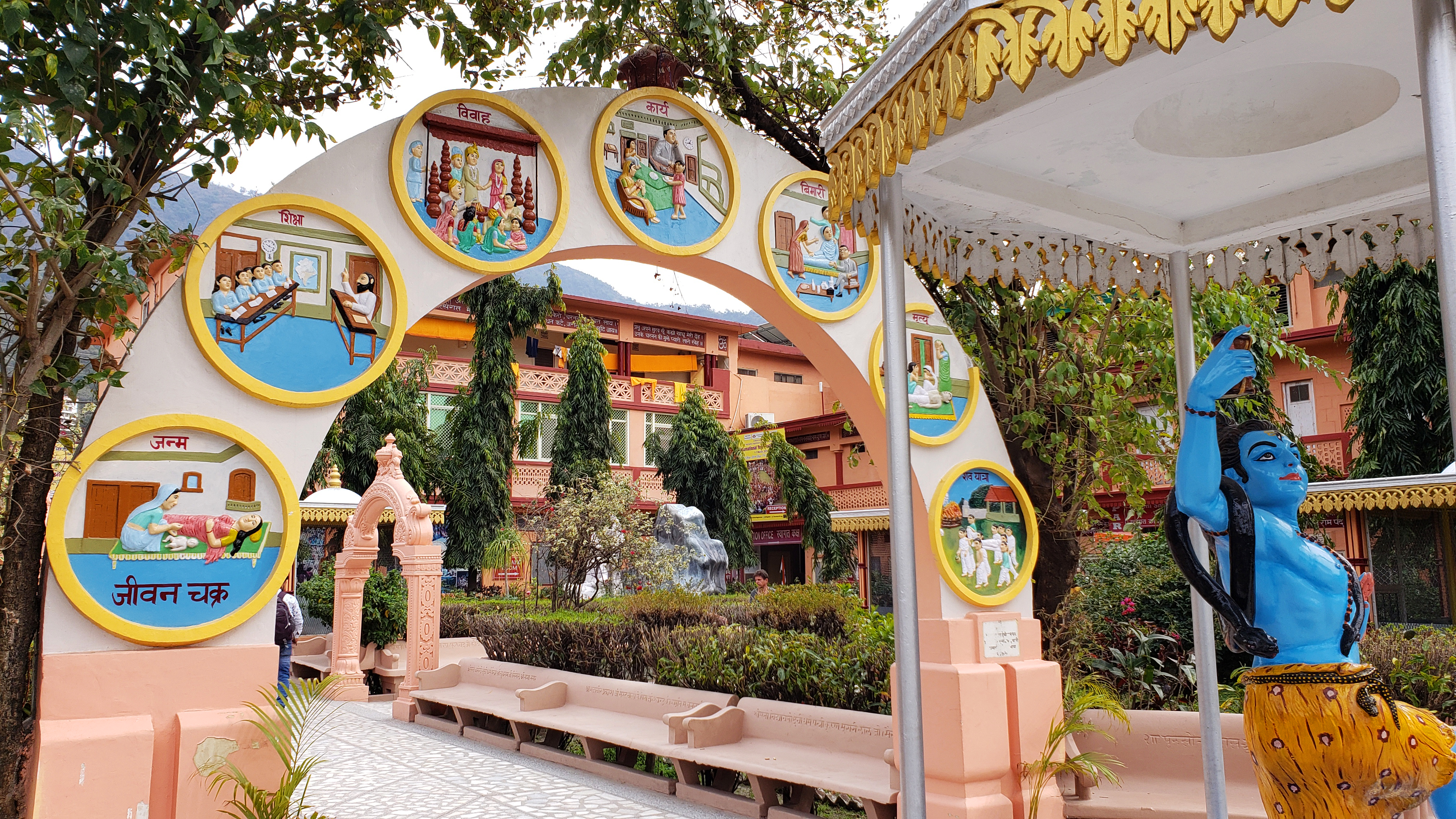
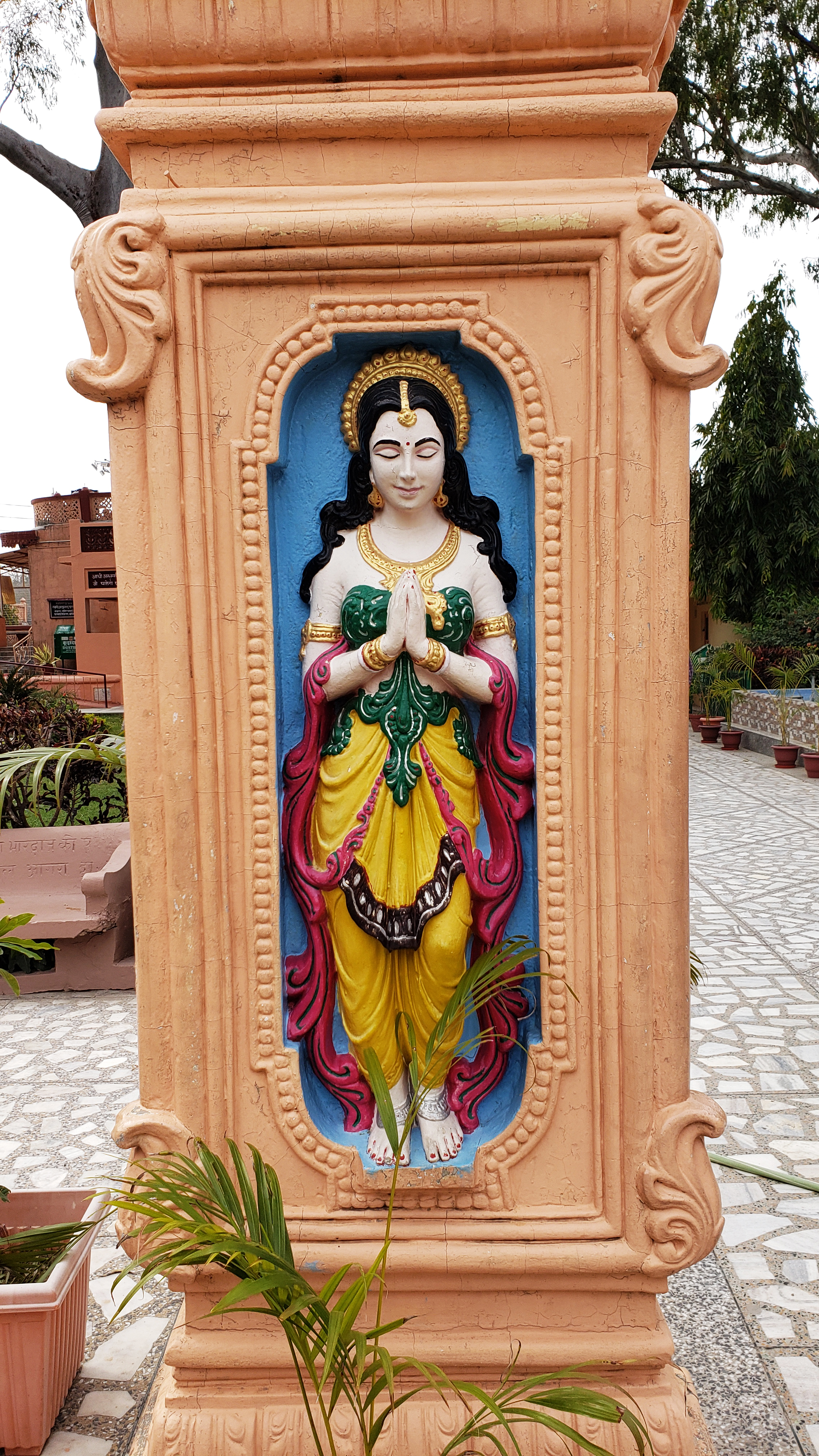
Spirituality plays an important role within the Indian culture and is part of everyday life with frequent, if not daily visits to temples throughout the country. The concept of spirituality is taught from a very young age in the Indian household and is passed down from generation to generation.
If you plan on travelling to India, I’m sharing my own personal experience and honest thoughts about my first stay at an Indian Ashram with you in this post.
First Impressions
As a part of my recent visit to India, we stayed at one of India’s largest and most popular Ashrams called Parmarth Niketan, which is located along the banks of the powerful Ganga River and has been around for over 70 years. We were scheduled to stay a total of six days and share a room with our rooming buddy that was assigned to us throughout the entire trip.
Upon arriving to the Ashram, I was in love with the surrounding landscapes and immaculate gardens within the premises. Rolling green hills in full view, large palm trees towering over the Ashram’s peaceful gardens and beautiful terracotta coloured gates adorning the pathways with the welcoming sign saying, “Welcome To Your Himalayan Home.” So far, my impressions of Parmarth Niketan were very positive.

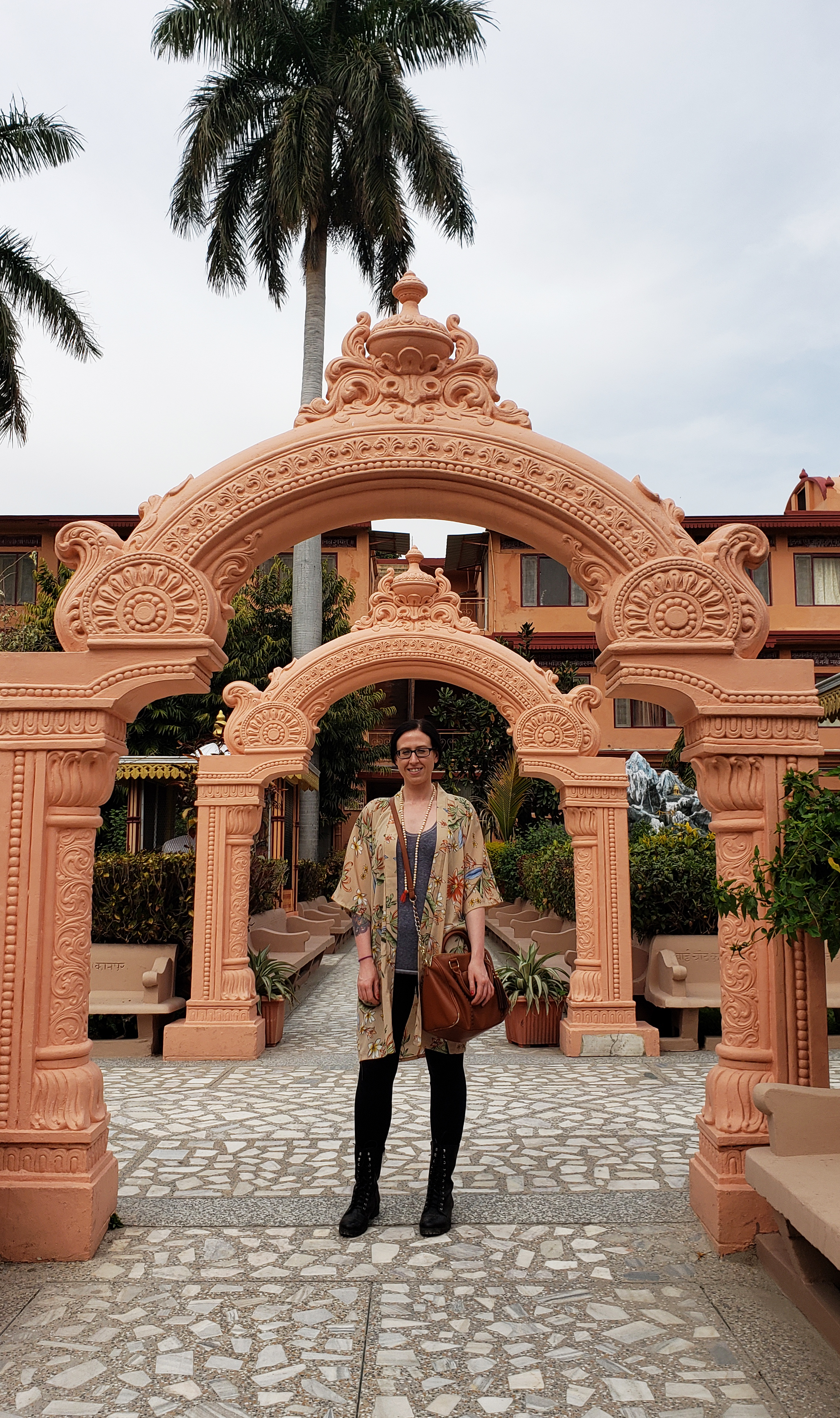
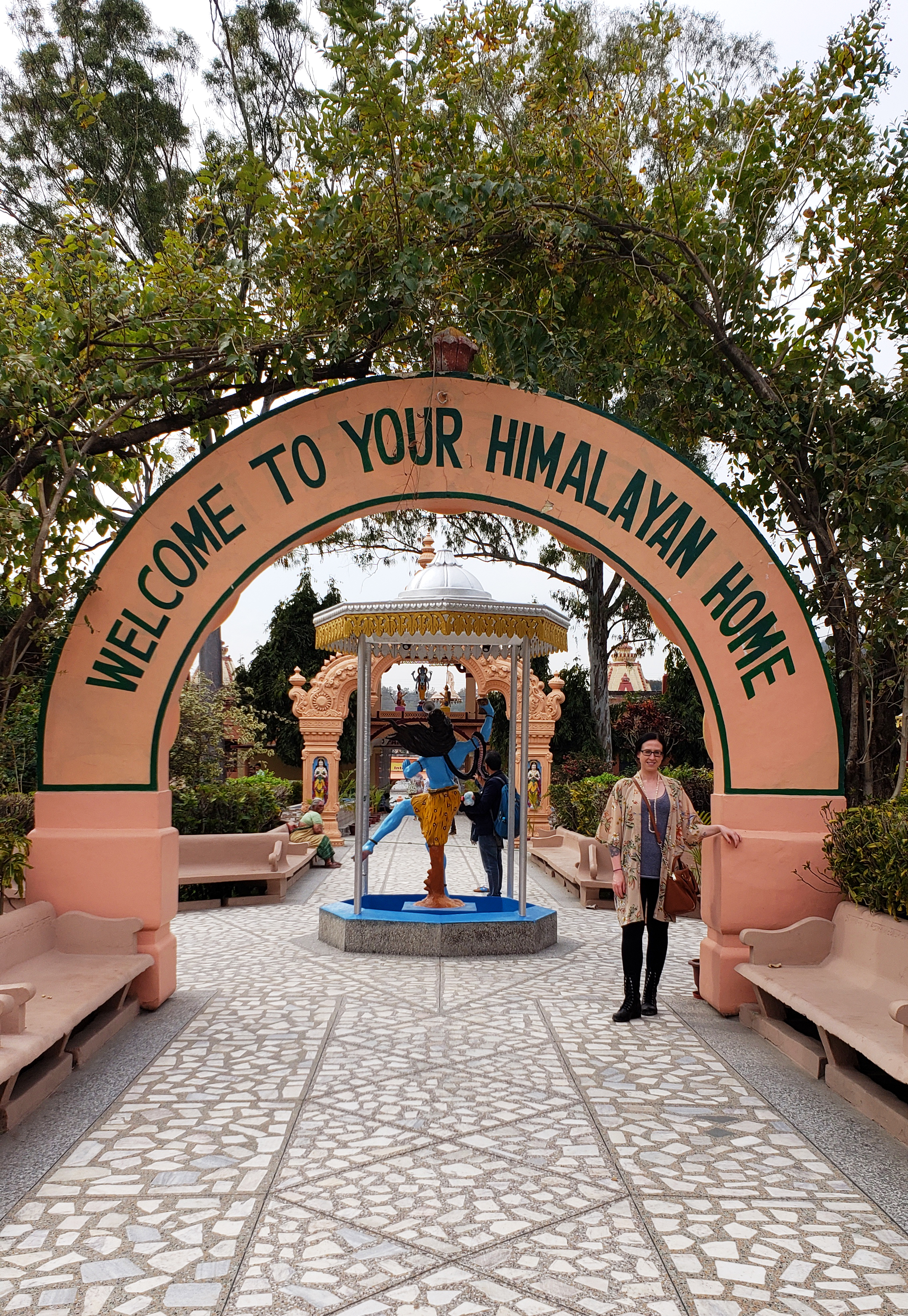
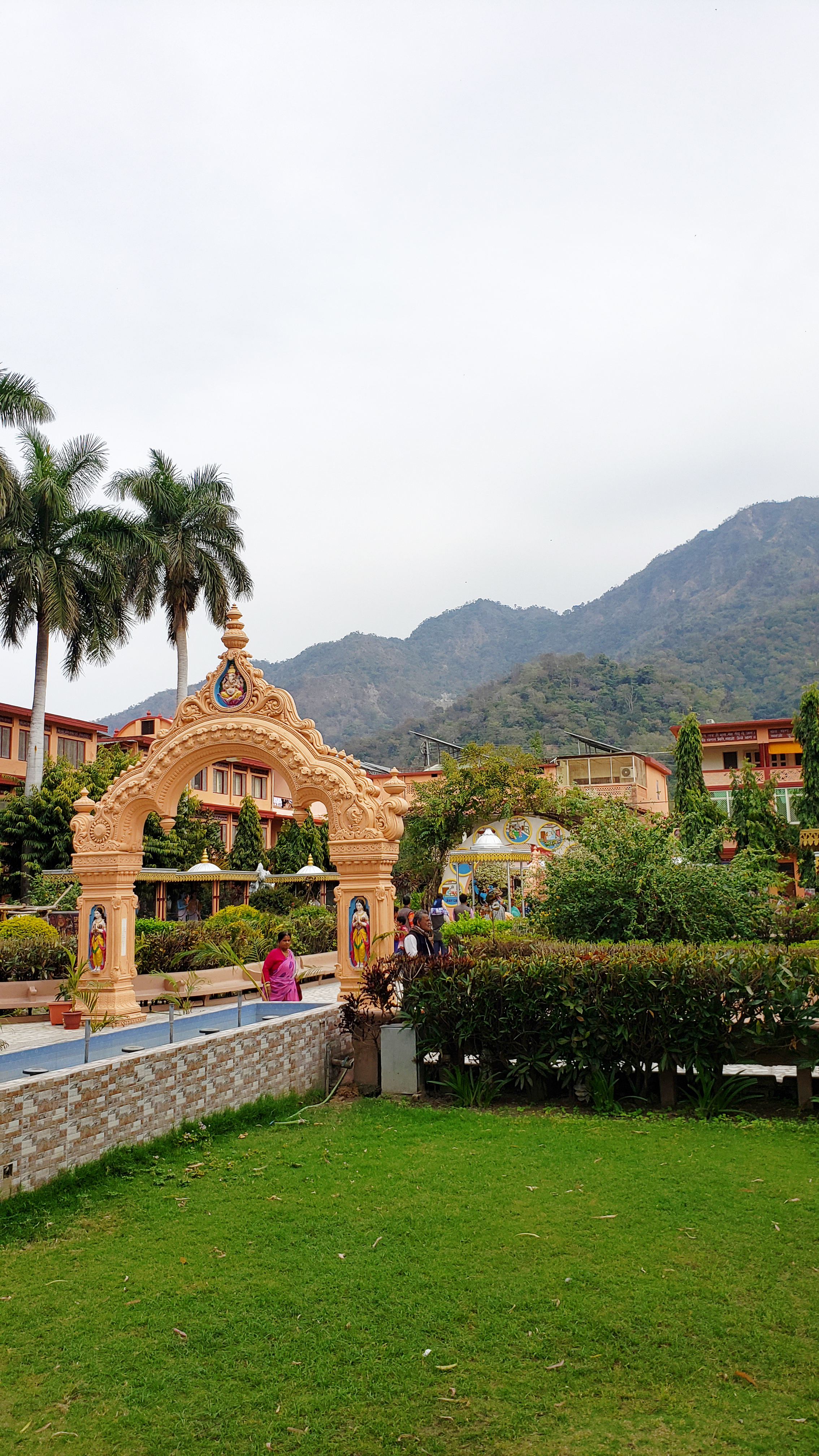
Accommodations
We were given our room keys and a schedule to follow for our week at Parmarth Niketan, which outlined eating times and various activities that were arranged for us. We were told that there was zero WiFi on the premises and that was okay for me, but initially I had no idea and my parents had no idea, so to not hear from me for six days probably would’ve freaked them out, so I used my roomie’s data plan to send a quick “I’m not dead if you don’t hear from me for a few days,” email. We were also told that there was a strict 9pm curfew and had to be back before then because they lock the gates to the Ashram to prevent leopards from entering the grounds at night. Oh, ok!
As we walked into the rooming building to head to our room, the inside of the Ashram wasn’t what I was expecting…at all. The building interior was a dingy looking beige colour and consisted of two levels of rooms that resembled a jail-like atmosphere to me. As I turned the key and walked into the room, I was hit with the odor of mothballs (they were in the bathroom sink) and the most basic room I’ve ever stayed in. I normally have no problems with “roughing it” a bit, but the bed was as hard as a rock and had bedding that was torn up with holes all over in as if it were destroyed in the washer. We were given one towel for the entire week, two small rolls of toilet paper and had troubles getting new ones from housekeeping, since they were nowhere to be found everytime we needed something. Luckily we had some spare tissue to use during our inconvenient shortage. Our AC leaked water all over the floor when we finally got it to work and the overall presence of the room was cold (not literally though) and uninviting. Oh, and not to mention you could hear everything from the hallway and even some neighbouring rooms with people coughing their lungs out on the regular. It was going to be a loooong six days, I thought. At least the toilets weren’t squat toilets though. 😉



The Food
Food is an important part of any trip with me and the food at Parmarth wasn’t my favourite, but it wasn’t horrible either. They stuck to the same menu throughout the week, with subtle changes daily. To gather your meals, you would line up outside of the main cafeteria room with the other guests and collect your food in a stainless steel tray, which I’m guessing were used for keeping up with cleanliness and bacteria to a minimum. After a few days, some of us wanted to eat something different, so we would wander the streets during our free time and head to a café, or restaurant in search for good coffee and a change in culinary scenery, oh and to steal some WiFi as well. 😉

Nightly Ganga Aarti
To cap off each night at sunset, we had the privilege to attend the Ganga River Aarti at Parmarth Niketan, which is a daily ritual that uses fire as an offering. Parmarth welcomes all guests no matter their age, sex, race, creed, or religion. It is a very powerful and insightful experience to witness surrounded by hundreds, if not thousands of people that make it a priority to be a part of this event each and every night along the Ganga River. Pujya Swamiji is President and Spiritual Head of Parmarth Niketan Ashram and makes a nightly appearance to offer words of wisdom and to shed happiness and peace while passing around offerings of fire throughout the crowd as traditional Hindi songs are being sung aloud by all around. Although Ganga Aarti happens nightly, we weren’t required to join every night, but on our last night there, we were personally invited to sit around the fire as guests of honour and witness the tradition up close and to participate as well. That was a really awesome night that I’ll remember for years to come.
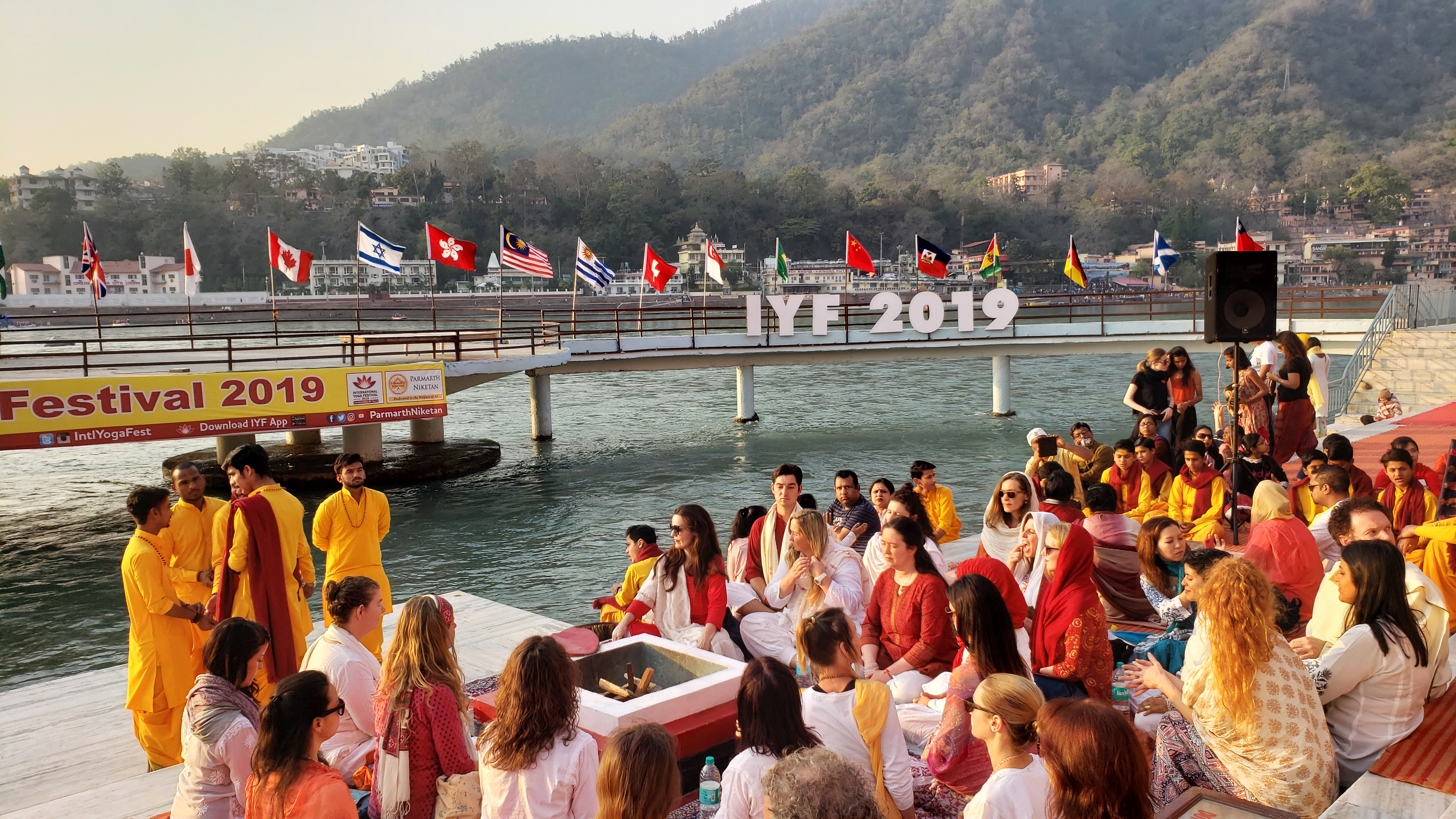
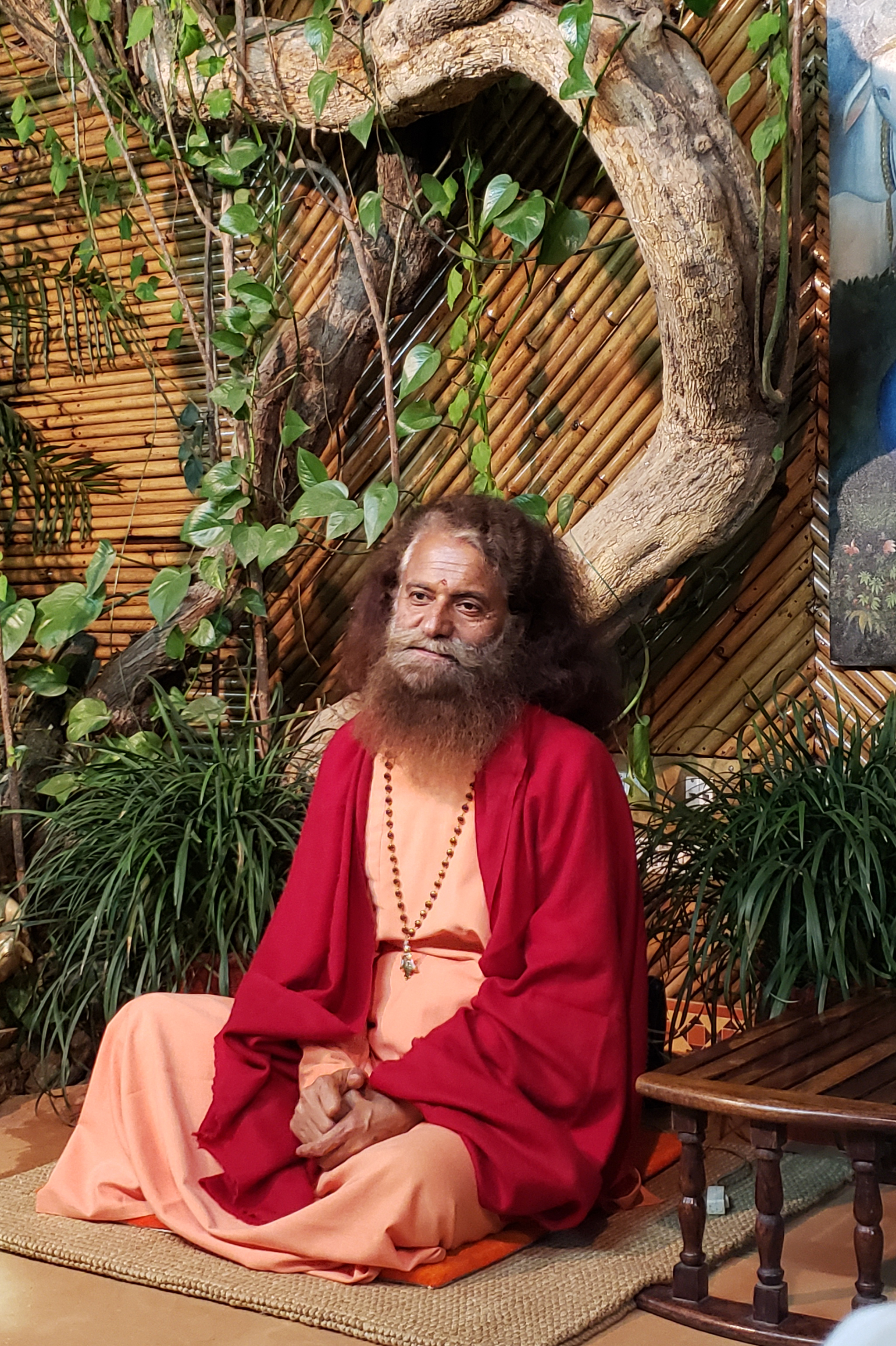
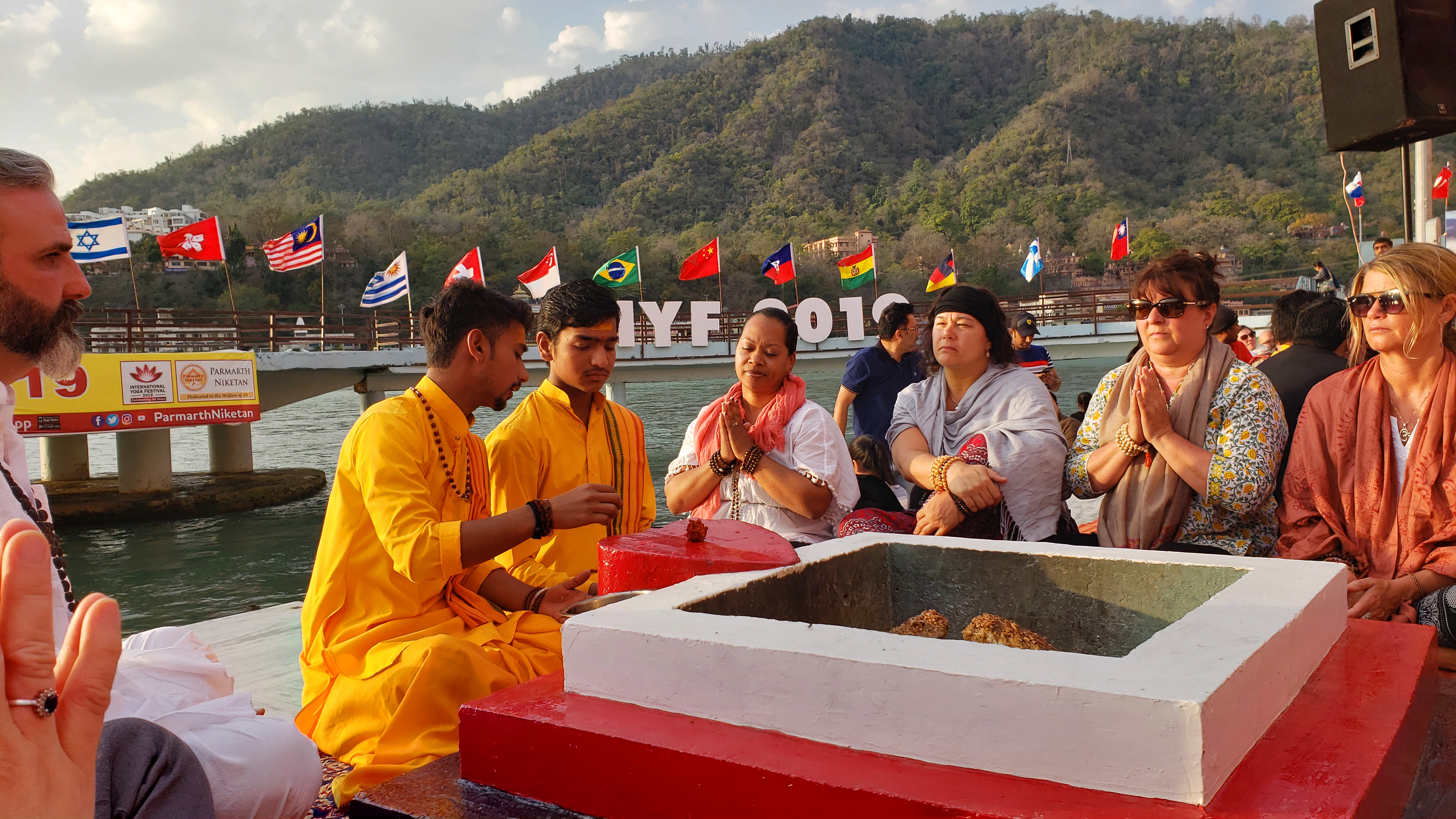
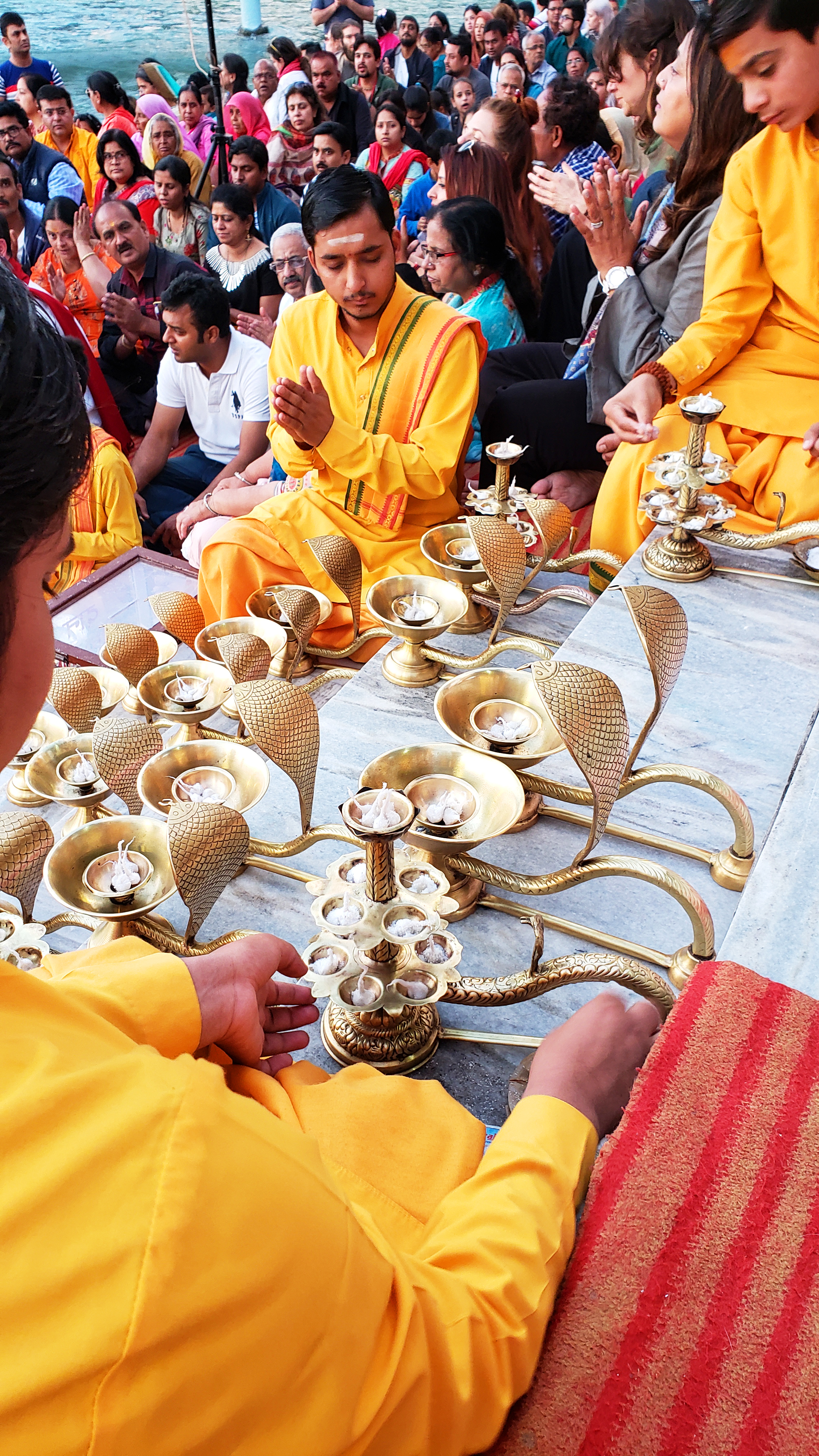
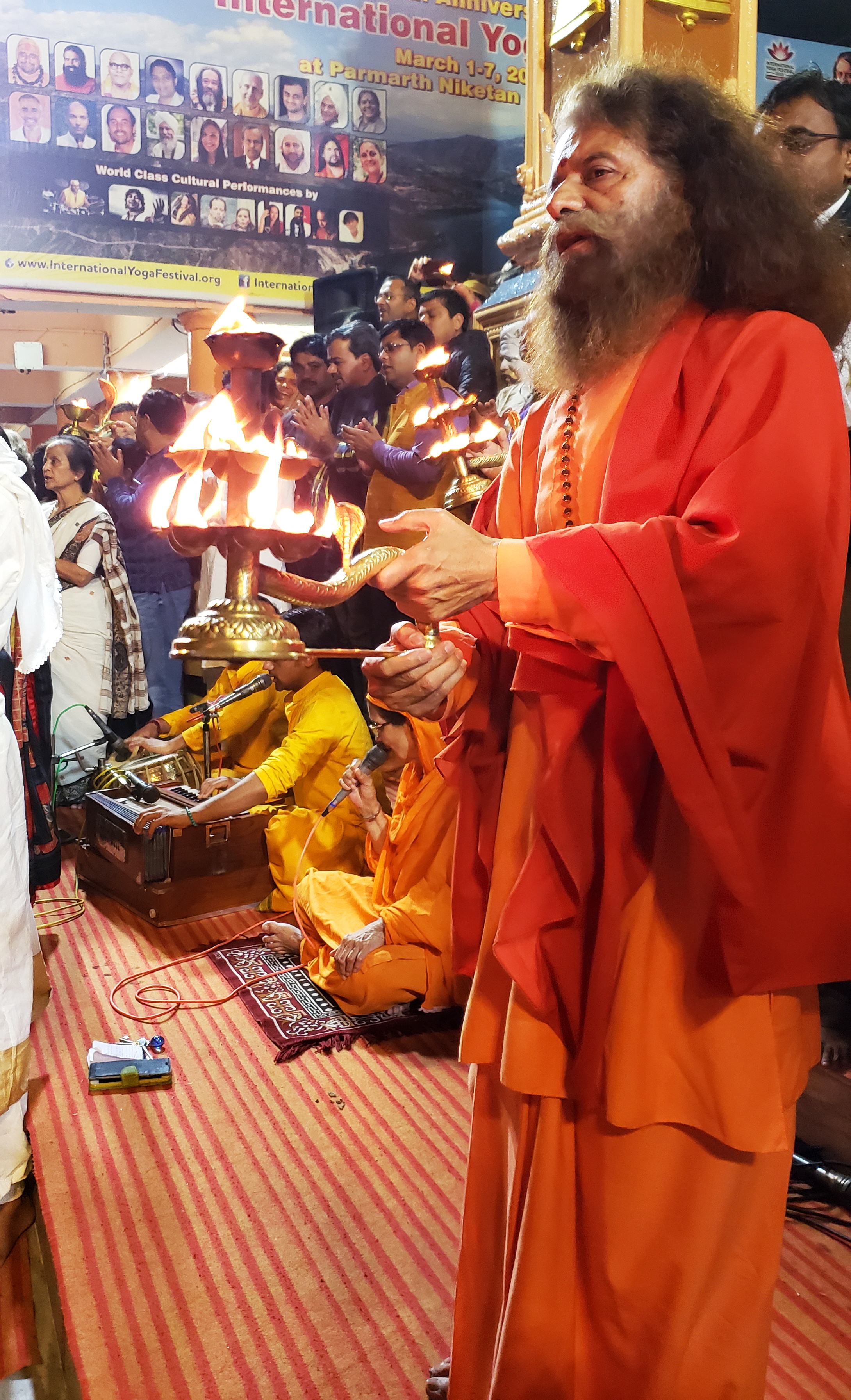
Other Activities On & Off The Ashram Grounds
There were a variety of activities to take part in during our stay, which was a great way to make each day different. There were daily morning yoga classes, which I did three days in a row to get some early morning workouts in, meditation classes, we visited the famous Beatles Ashram where John Lennon wrote almost forty songs during a nine day stay in the 1960’s, we went on a jeep safari, had lunch served to us by monks in training at another Ashram within Rishikesh, visited Vashisha Guffa; a meditation cave near the banks of the Ganga River, had traditional Shirodhara and Potli massages at the Ayurvedic massage spa at Parmarth Niketan and last, but not least, celebrated the arrival of Spring (end of March) with the colourful and happy Holi Festival while walking the streets of Rishikesh with the locals. Most of these activities were arranged for us in advance (minus celebrating Holi), but most people that go to an Ashram tend to stick to the Ashram’s scheduled activities and practice Yoga, meditation and other spiritual classes within the Ashram’s grounds.
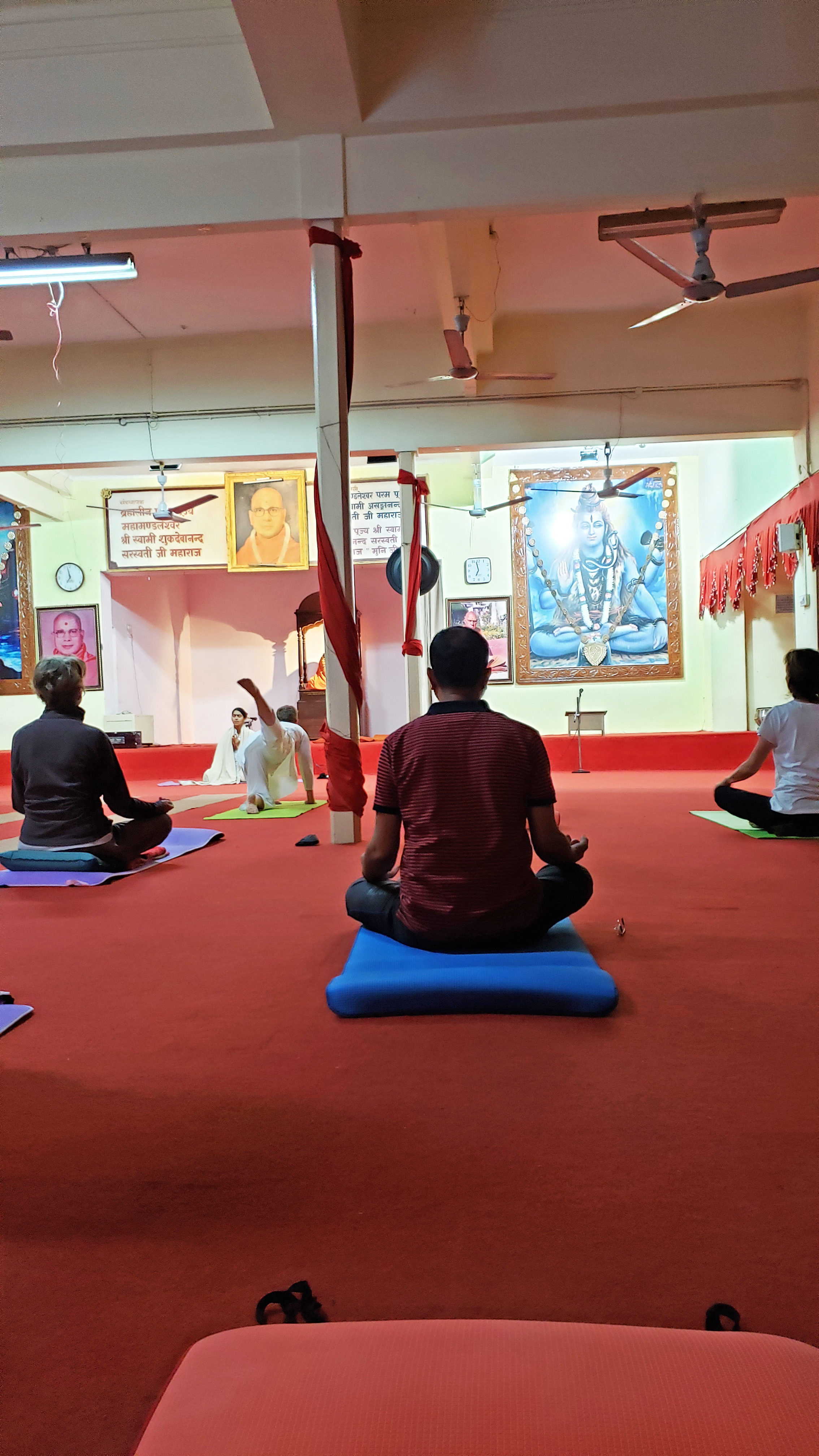

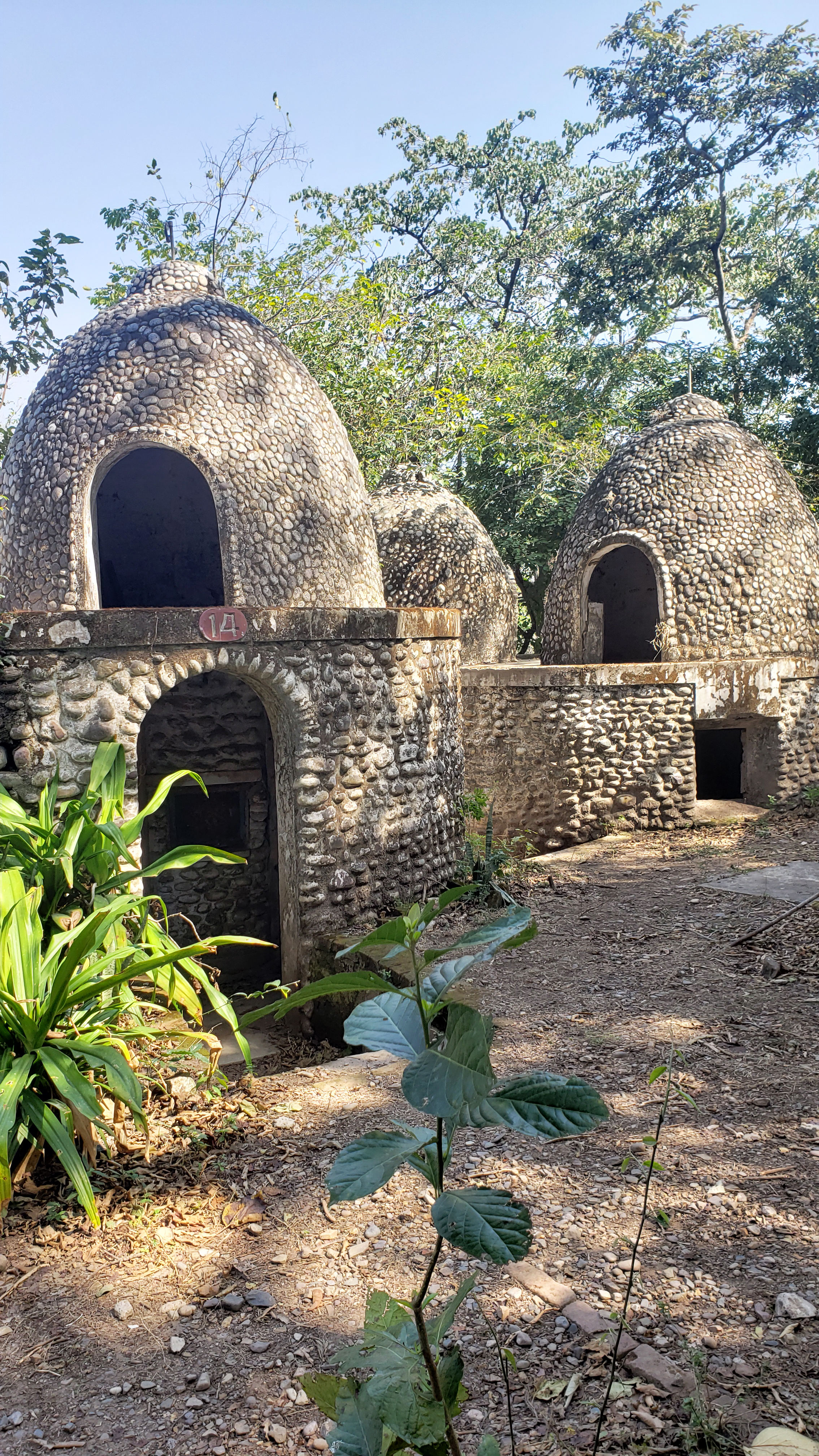
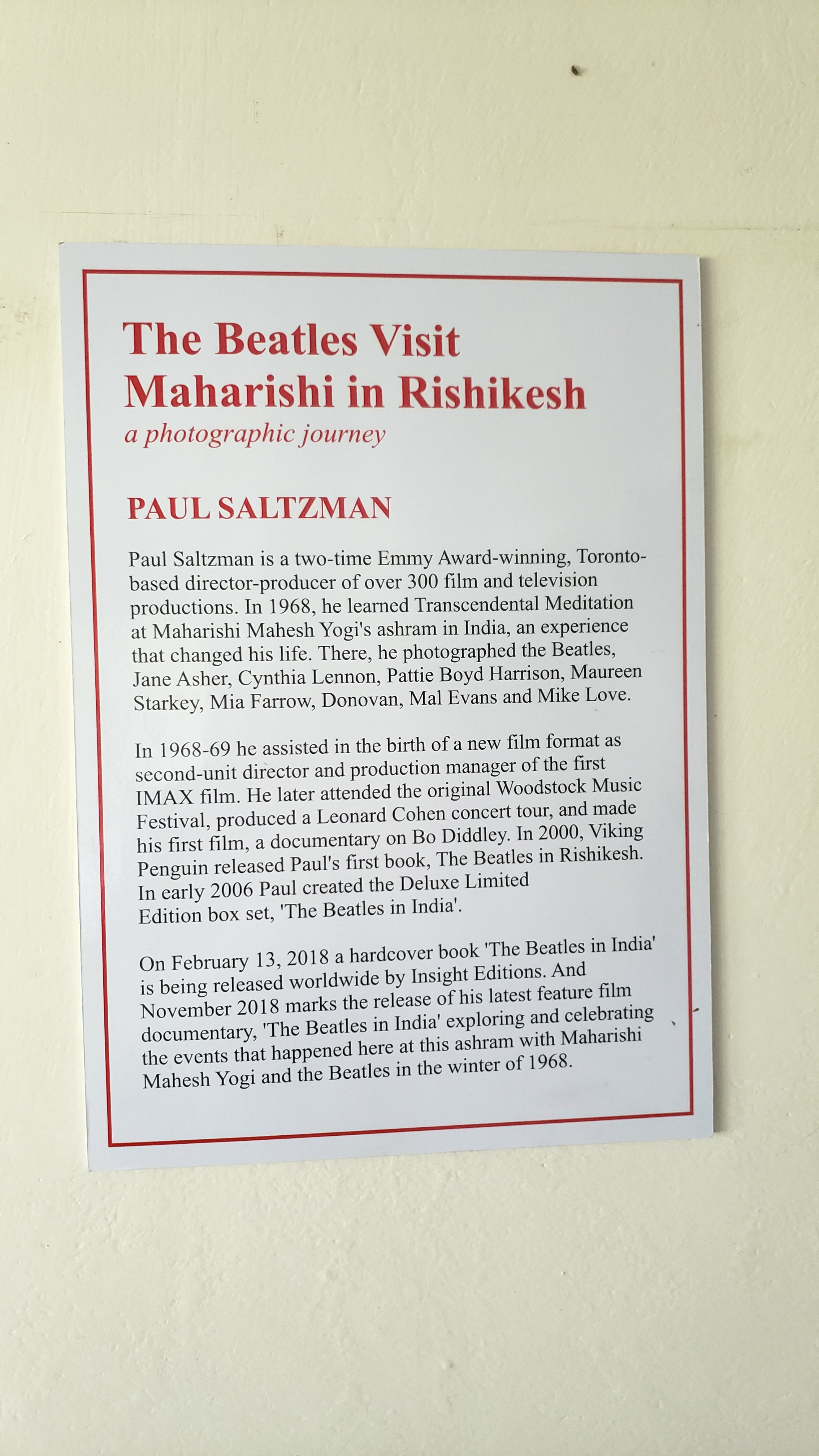
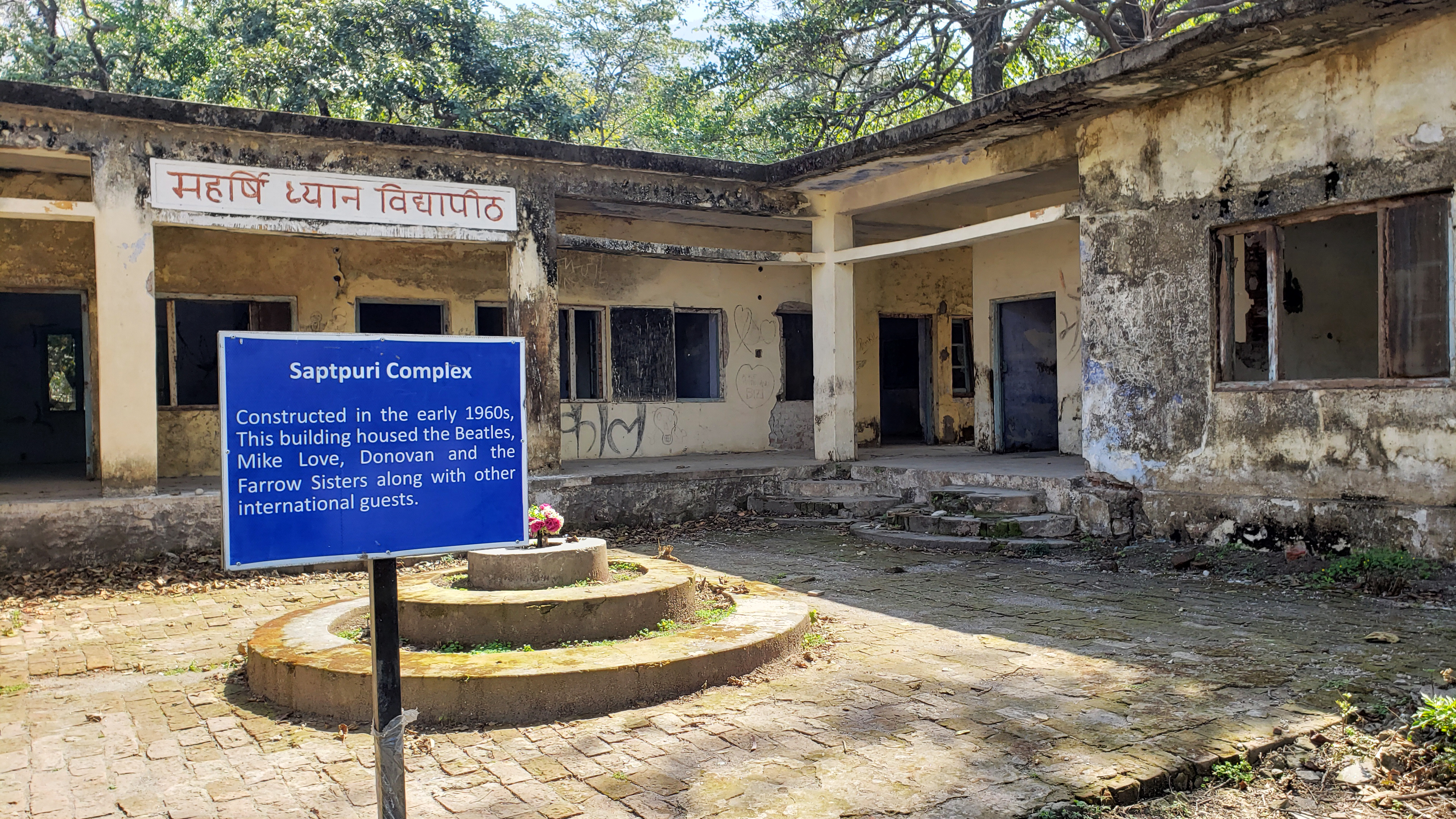
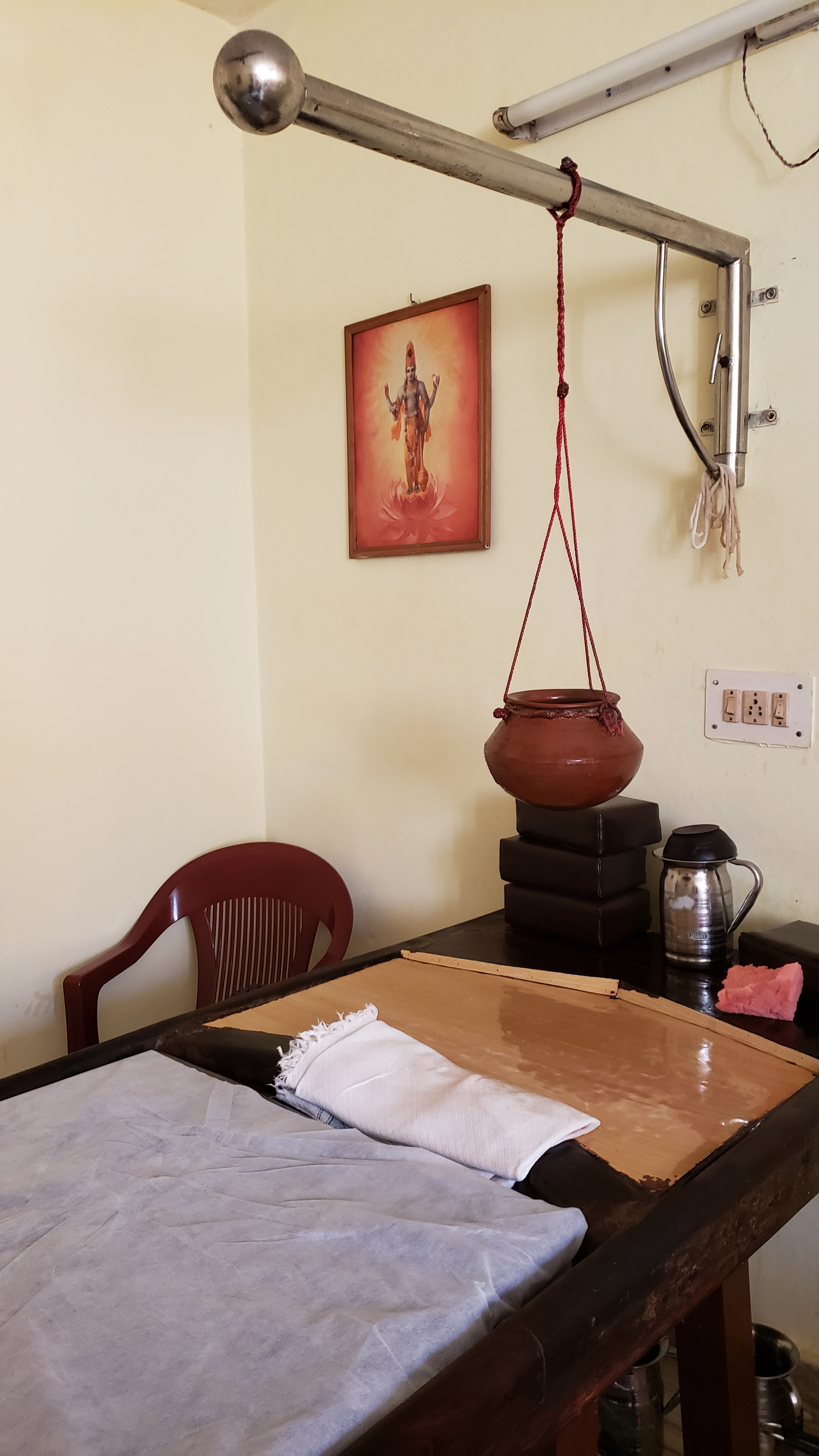

Final Thoughts
Staying at an Ashram is meant to remove you out of the comfort of your daily life and to immerse you into a life of pure relaxation free of distractions and stress caused by the hustle and bustle of today’s world. Getting up early each day with the sun rising over the lush green hills of the Himalayas and breathing in cool mountain air did make me feel less stressed out and just living in the moment and not having to worry about anything felt really damn good. I’ll be the first to admit that I am in no means a spiritual person. I don’t believe in a higher power, connecting with my soul, or anything along those lines. That being said, I DO believe in trying to learn more about cultures that DO believe in certain practices, or powers that may be and staying at an Ashram for a week totally took me to a place where I had an opportunity to be a part of something that I normally wouldn’t be part of.
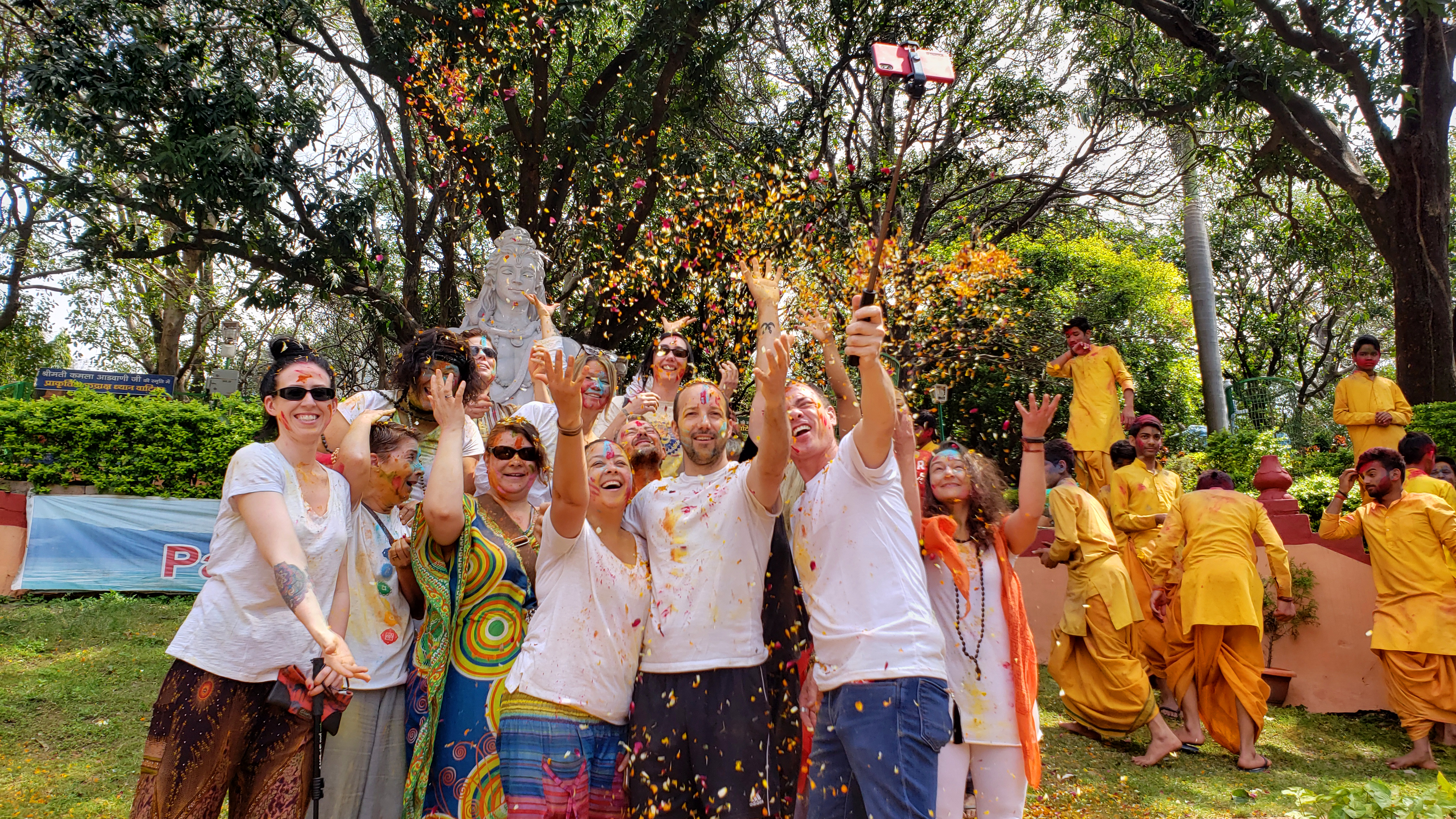
Living the Ashram way of life isn’t for everyone, but I can say that everyone should try to stay in one at least once in their lives, or at least while travelling through India. The simplicity of staying at an Ashram opened my eyes to the things we as Westerners, or society in general these days take for granted. Every Ashram is different and it’s important to do research before committing to stay at one. Some may be more luxurious, some may focus more on detoxifying your body and some may be extremely bare bones basic, so it’s entirely up to you and what kind of experience you wish to have. I have to admit that when I first came to India, I did not know what to expect of an Ashram, what it was all about and how I would manage, but at the end of the stay, I was happy with getting out of my comfort zone (literally, that bed and pillow were the absolute WORST) and experiencing something that a lot of people haven’t, or may never get to experience. Staying at an Ashram will humble you and make you appreciate the little things that much more when you go back to your “normal” life…whatever that may be.

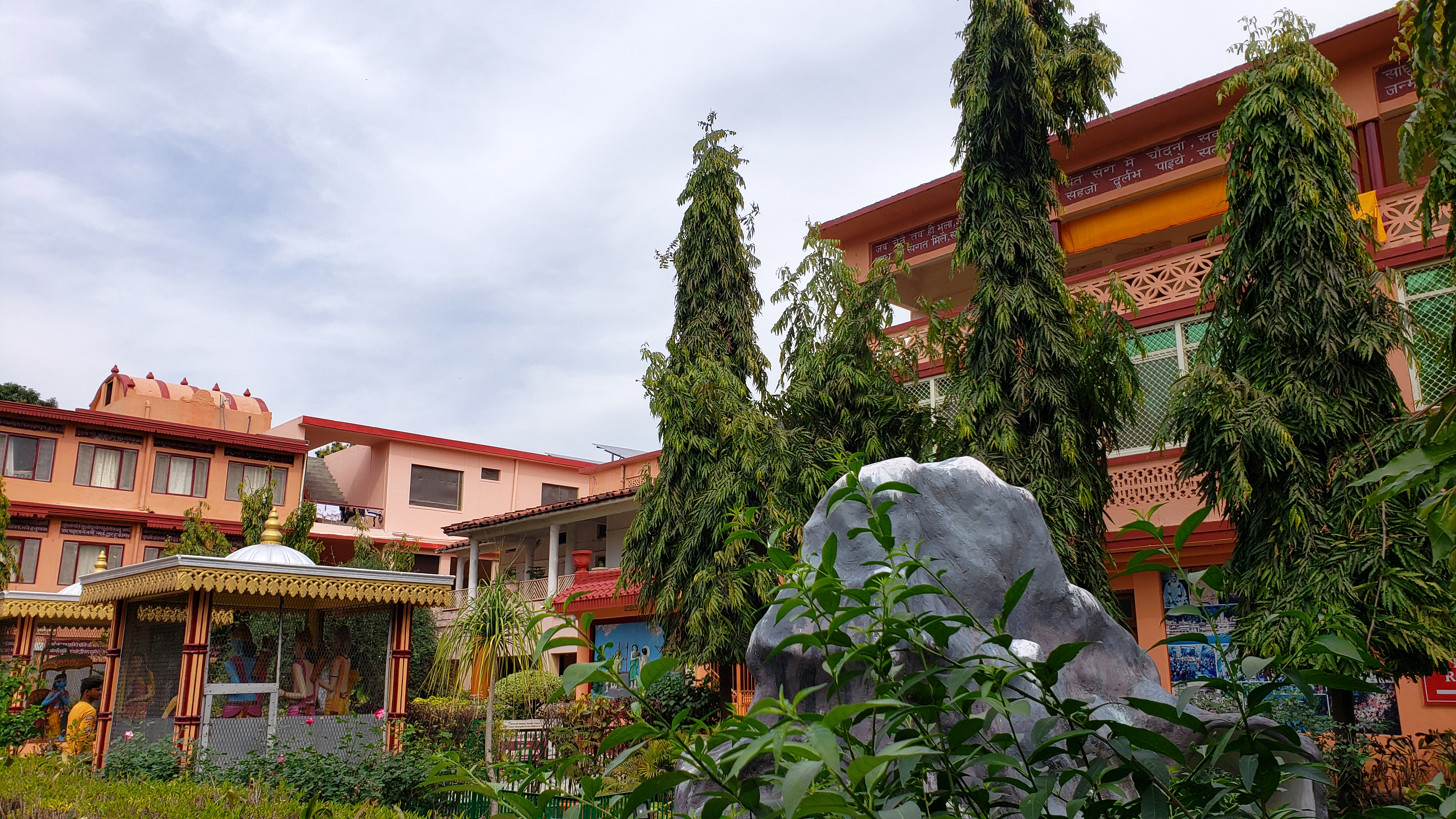
Would any of you consider staying at an Ashram and getting back to basics? Why, or why not? Let me know in the comments below! xo
I travelled to India with Vivid Life Journeys in partnership with Toerboer based in South Africa and Ashoka Holidays based in Jaipur, India. Thank you to everyone at Parmarth Niketan for an incredibly beautiful, unique and eye opening experience.
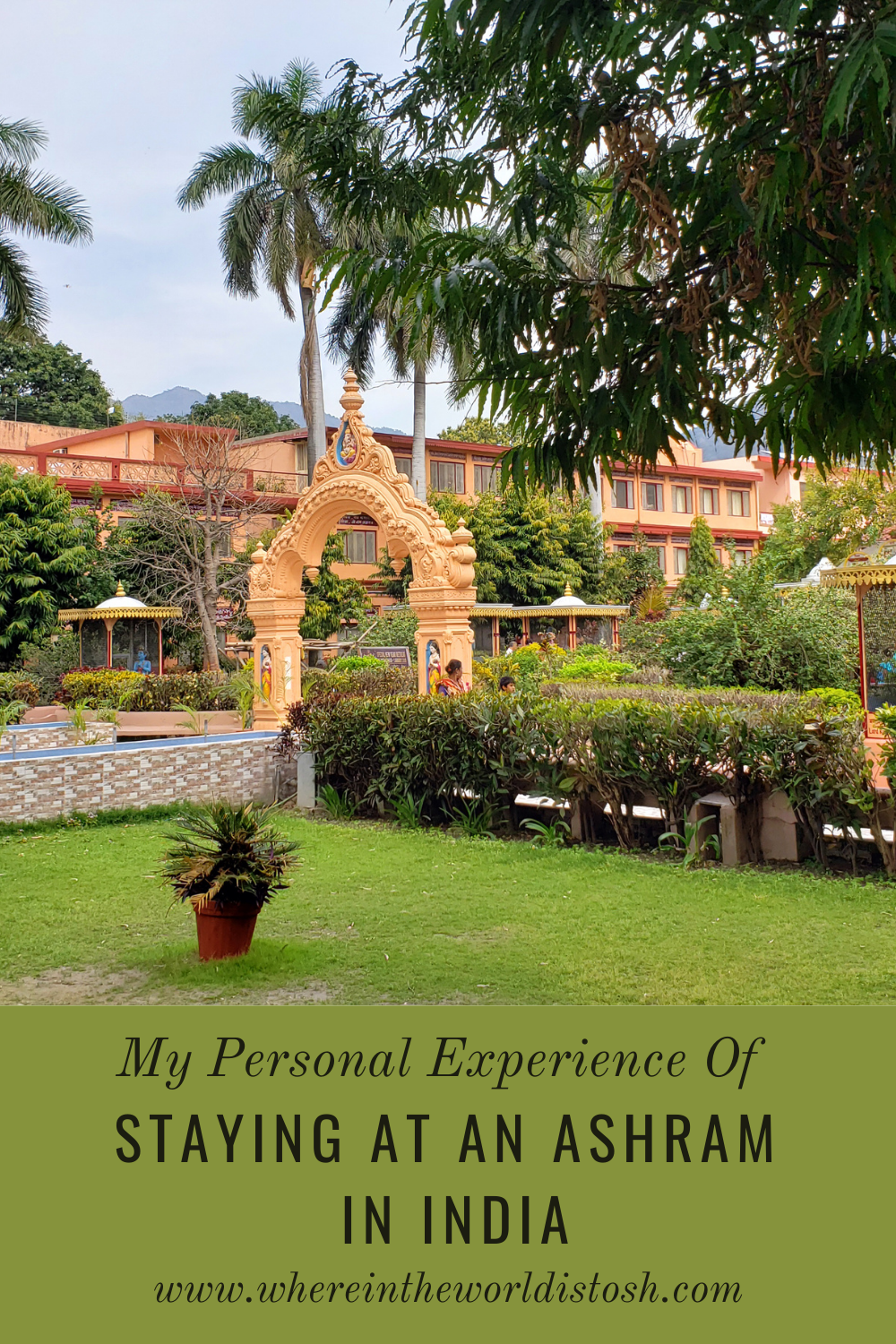

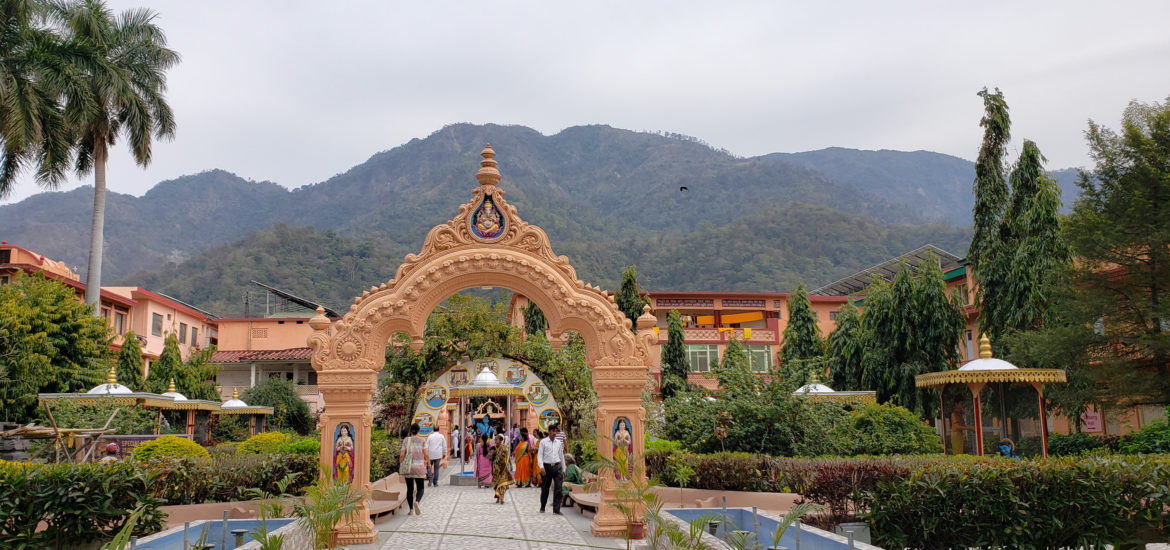
Your post covers it well. A pretty good ashram book is ‘Ashrams of India.’ eBook only from Amazon and ashramsofindia.com. The eBook has hyperlinks to Google Maps, making it easier to find some the ashrams and other interesting places!
Hey Roger! Thanks for reading the post. That’s actually sounds like a really interesting book. I’ll definitely have a look at it. I’d love to go back to India and experience different types of Ashrams. Thanks again 🙂